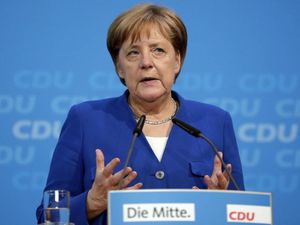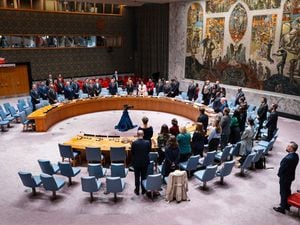Compromise reached in German government migration stand-off
German Chancellor Angela Merkel has been at odds for more than three weeks with interior minister Horst Seehofer.

Chancellor Angela Merkel and her rebellious political allies have reached a compromise in a row over immigration that threatened to bring down Germany’s coalition government.
Mrs Merkel has been at odds for more than three weeks with interior minister Horst Seehofer over his insistence that migrants who have sought asylum elsewhere in the European Union should be turned away at Germany’s borders.
Mr Seehofer leads the Christian Social Union, the sister party to the chancellor’s Christian Democratic Union.

But the two emerged from about five hours of talks saying they agreed to establish “transit centres” on Germany’s border with Austria where asylum-seekers would be evaluated and, if it turned out they had already applied for protection in another EU country, sent back to that country.
Individuals who are rejected by those countries will be pointed back into Austria “upon agreement” with Vienna, according to the deal that Mrs Merkel called a “very good compromise”.
“The spirit of partnership within the European Union is protected, and at the same time it’s a decisive step to regulate and organise secondary migration,” she told reporters without taking questions.
It was not immediately clear whether Austria had already agreed to the provision. Whether the two conservative parties would be able to get Mrs Merkel’s junior coalition partner, the centre-left Social Democratic Party, to agree was also an open question. The Social Democrats previously rejected the idea of transit centres.
While the deal sounded very similar to one offered by Mrs Merkel and rejected by Mr Seehofer last week, the interior minister said he was happy with it, saying the compromise would have a “very clear lasting effect on the future”.
Mr Seehofer offered his resignation both as interior minister and leader of the Bavaria-only CSU at a party meeting on Sunday. He agreed to put it off until after one more round of talks with Mrs Merkel and said on Monday he would remain in both posts.
“I’m happy we were able to achieve this compromise, and it shows that it pays off to fight for your convictions,” Mr Seehofer said.
Mr Seehofer and Mrs Merkel have long had a difficult relationship and sparred over Germany’s approach to managing immigration on and off since 2015, when the chancellor welcomed refugees into the country.





